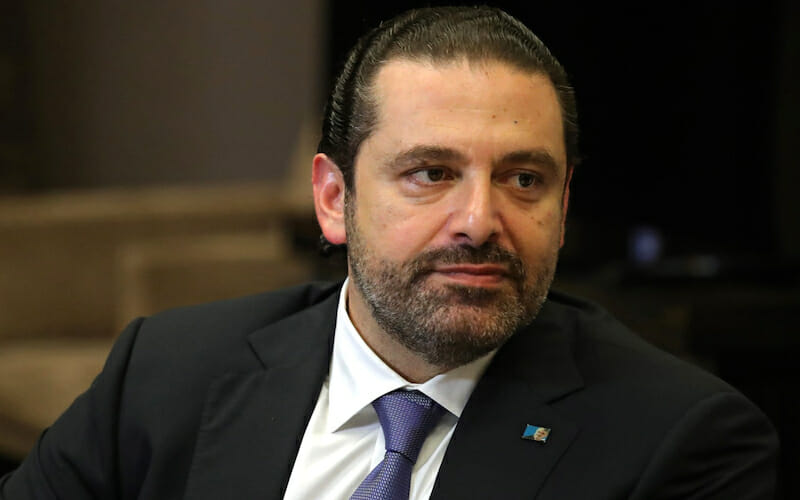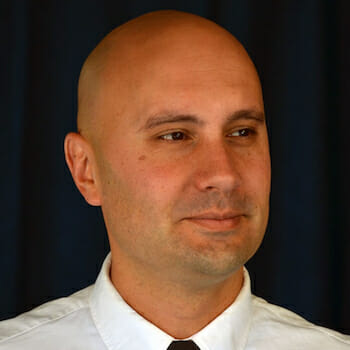
Out with the Old and in with the New? Lebanon’s Upcoming Parliamentary Elections
Lebanese citizens go to the polls on May 6, 2018. It will mark the first parliamentary election in Lebanon in nine years. Elections were postponed on three occasions because of security concerns and disagreement over the drafting of an electoral law. During those nine years, Lebanon and the Middle East have witnessed and experienced considerable turmoil. What kind of impact has it had on the Lebanese electorate after a 9-year absence from the polls? Will the Lebanese vote for change? Or will they continue to support the status quo?
Some storylines to watch regarding the upcoming general election:
What will Lebanon’s new electoral law reveal?
Lebanon’s parliamentary system is based on the proportional representation of its diverse religious society – eighteen recognized sects. Parliamentary seats are allocated to sects in various districts based on their percentage of the population. Due to changing demographics, the previous electoral law witnessed Christian deputies in certain districts being elected by Muslim majorities.
The Lebanese parliament passed a new electoral law on June 16, 2017 to remedy this problem. The law introduces proportional representation across 15 newly redrawn districts. It requires the voter to choose an electoral list and then one candidate from their chosen list. In theory the law is intended to ensure that Lebanon’s sectarian communities can determine their own representatives. Furthermore, voters will supposedly focus on the candidate’s policies, not their sectarian identity.
The law failed to meet the requirements of some Lebanese parliamentarians and has been heavily criticized by elements of civil society. Certain politicians believe it did not go far enough to ensure that communities will determine their representatives. Civil society activists believe the law is a gimmick. It ultimately reinforces sectarian divisions of Lebanese society and the one candidate selection perpetuates clientelist practices that are ubiquitous in Lebanese politics. Activists have also criticized the law for its inability to reign in campaign financing, a considerable advantage for the established politicians and parties.
Will this new electoral law be more representative of Lebanon’s demographics? And will it give non-traditional parties and politicians a fighting chance? In a country where historically the interests of sects and elites are paramount to the interests of all Lebanese, it is hard to imagine parliamentarians purposefully approving a law that directly jeopardizes their political future. The future of these incumbent parliamentarians may ultimately have more to do with their track record during the last nine years.
Will Hezbollah maintain its relative hegemony over the Shia community?
Initially an outsider and critic of the Lebanese political system and governments, Hezbollah’s political participation and popularity in the Shia community has dramatically increased during the last two decades (90’s and 2000’s). Two issues pose a challenge to its continued popularity among the Shia: 1) Its intervention in the Syrian civil war; and 2) Its participation in the Lebanese government.
Hezbollah’s raison d’etre has been Israel. Hezbollah publicly turned its attention to Syria on May 25, 2013 by entering the civil war. Its participation has been critical to the survival of the Syrian regime and the reclamation of Syrian territory. The extensive and prolonged participation of Hezbollah in the war has inevitably come with a price – a human toll and financial cost. The exact figures are unknown since Hezbollah is notoriously tight-lipped regarding its militia and finances.
Five years after the intervention, the level of support for the organization within the Shia community is unclear. Has Hezbollah succeeded in temporarily changing its narrative from Israel to Syria’s Salafi-jihadists? Have they convinced the families of martyred fighters that they died for a just cause? There is also the question of the intervention’s impact on the organization’s social services, welfare programs and other institutions. Has Hezbollah overextended itself by entering Syria? Lastly, the entrance of Hezbollah into the Syrian conflict has placed the Shia community squarely in the crosshairs of the Sunni/Shia conflict enveloping the region. Lebanese Shia residents were deported from Gulf States (i.e. UAE) at an accelerated rate following Hezbollah’s intervention. And the Shia community in Lebanon was targeted by several suicide bombings in 2015.
Hezbollah’s participation in every Lebanese government since 2005 has made it more vulnerable to criticism. Lebanese governments continue to grossly underperform. Governments failed to pass a budget for more than twelve years. During this time Lebanon achieved the world’s third highest debt to GDP ratio. Corruption remains rampant inside and outside the government. Lebanon ranks 143/180 countries in the 2017 Corruption Index. The electricity crisis plaguing the entire country continues unabated. And the government appears to have only temporarily resolved the garbage crisis that consumed the country for part of 2015.
Hezbollah has prided itself on its ability to provide for its constituents and remain immune to corruption. Will the abject failures of the government – a government which Hezbollah partakes in – begin to tarnish Hezbollah’s reputation in the eyes of the Shia community? Will its constituents begin to see Hezbollah as synonymous with the Lebanese government and seek political alternatives? Or not vote on May 6?
Will the waning power of Saad al-Hariri and the fragmentation of the Sunni community continue?
Once having a virtual political monopoly over the Sunni community, the political fortunes of Saad el-Hariri and his Future Movement have been on a steady decline since the 2005 parliamentary elections. Hariri and the Future Movement have been hemorrhaging popularity in the Sunni community through mismanagement and miscalculations. First and foremost, they have failed to bring to justice the killers of Saad’s father, the party’s former leader Prime Minister Rafiq al-Hariri. The Hariri government’s investigation of Hezbollah’s communications network and the removal of Hezbollah ally Brigadier General Wafiq Shoukair at the Beirut International Airport backfired. The actions provoked clashes in May of 2008 largely between pro-Hariri security forces and Hezbollah. Hariri’s forces were defeated and the subsequent Doha agreement awarded the Shia community (i.e. Hezbollah) with more legislative power. After a 2-year veto, Hariri capitulated and Hezbollah ally Michel Aoun became president in 2016. Hariri’s most ignominious political moment may have come in November 2017 when he announced his resignation from the Premiership in Saudi Arabia. Hariri subsequently rescinded his resignation but the extent of the damage is unknown.
Hariri and the Future Movement have been the largest single bloc in the parliament since the Lebanese economy began floundering after the outbreak of the Syrian civil war. Annual GDP growth rate has ranged from 0.9 to 2.8 percent during the last seven years. Unemployment reportedly hovers around 25 percent while youth unemployment is reportedly at 40 percent. The economic downturn and the Syrian conflict has been most felt in the predominantly Sunni north – Tripoli, Miniyeh-Danniyeh and Akkar. Already undeveloped areas the entrance of more than 200,000 Syrian refugees has driven down wages and opportunities for low-skilled labor. Remarkably Hariri only introduced a development project for Tripoli within the last week.
This mismanagement and miscalculations, particularly in the context of a growing Sunni/Shia conflict, has produced discontent in the Sunni community and opened the door to credible challengers. Shaykh Ahmed Assir emerged from Hariri’s hometown of Sidon in 2011 to criticize Hezbollah’s arms and the absence of Lebanese support for Syrian opposition in the civil war. Following a deadly encounter with the Lebanese army Assir was arrested and sentenced to death. Although Assir no longer poses a threat to Hariri other prominent elites (i.e. Ashraf Riffi, the former Minister of Justice and former head of internal security) and non-traditional figures have cut into Hariri’s weakening power base in Tripoli and elsewhere. This was clearly demonstrated by the losses of Hariri and his allies in the Tripoli municipal elections of 2016.
In light of these potential developments, will Hariri and the Future Movement ultimately be relegated to a regional or local political factor (i.e. Beirut)? The significance of this potential development is twofold: 1) Further fragmentation of the Sunni political community makes it more vulnerable to being manipulated in political bargaining; and 2) This reality plays into the hands of the Shia political community (i.e. Hezbollah), effectively making them even more powerful in Lebanese politics.
Will the non-traditional parties/coalitions/movements/politicians emerging from Lebanon’s civil society build upon their relative success in the 2016 municipal elections?
Compared to many of Lebanon’s Arab neighbors, Lebanon enjoys a developed and diverse civil society. The challenge for Lebanon’s civil society has been its inability to influence legislation and policies at the national level. The garbage crisis of 2015 demonstrated these limitations/weaknesses. Following numerous rallies, the government responded with only a temporary solution. The temporary solution proved to be an spectacular failure as piles of garbage washed ashore on Lebanese beaches in January 2018.
Riding a wave of momentum generated by the garbage crisis, many members from civil society entered the 2016 municipal elections. The results were encouraging throughout Lebanon, but can these results be improved upon for elections at the national level?
New political parties like Sabaa and coalitions like Koullouna Watani face an uphill battle against the more established parties and politicians. First and foremost, they don’t have the money, institutional structure, exposure or media outlets of the major political parties. Hezbolllah, the Future Movement, the Free Patriotic Movement, Lebanese Forces and Harakat Amal have their own television stations or are closely affiliated with a station. The money of these parties, sometimes coming from external sources, enable them to maintain clientelist practices with segments of the Lebanese population. Issues of trust also factor into the equation. Voters are often skeptical/suspicious of who is behind or supporting a new party/coalition/movement. Furthermore, the reliance on a coalition of candidates (e.g. Koullouna Watani) rather than a political party does not allow for a well-developed political message to emerge. Lastly affiliations with certain political parties and personalities that date back to the civil war are hard to severe.
The fate of Sabaa, Koullouna Watani and other non-traditional politicians on May 6th will provide insight into the condition of sectarianism in Lebanon after 9 years. Will the illiberal democratic environment of Lebanon prevail? The fate of these non-traditional parties/movements/politicians is significant for another reason. Lebanon is a microcosm of the Middle East – many of the conflicts/tensions (e.g. Sunni/Shia) of the region occur in Lebanon. The results on May 6th will also provide a glimpse into the political climate of the greater Middle East.

